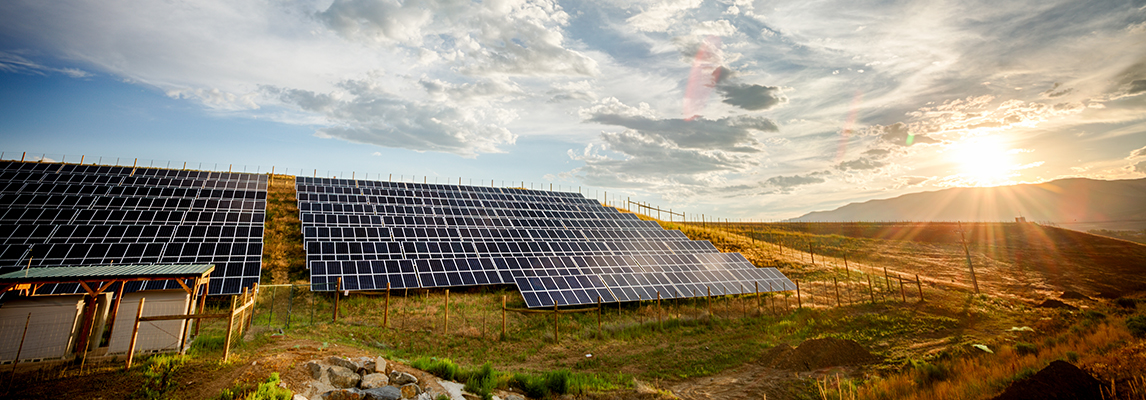Solar Energy

Solar Energy is simply energy collected from the sun. It is a clean, sustainable method of meeting today's growing power needs around the country. Solar electricity is produced using photovoltaic (PV) cells strategically placed on the ground. As the sun's rays hit a PV cell, electrons in the cell are excited by the energy. This causes the electrons to flow and create energy. Solar panels are then tied into the energy grid, helping to fuel our growing electricity demands.
Solar is an important part of our future energy plans. It utilizes non-exhaustible, natural resources, and since the energy comes solely from the sun, we will never run out of it. Unlike conventional fossil fuel power generation (such as coal, gas, and oil), generating electricity with ground-mounted solar PV involves no hazardous chemicals, uses little to no water, and produces no direct emissions of greenhouse gases. Once a solar project has completed its useful life, panels and all the other equipment are removed, and the land returns to its natural state as if there never was a solar installation there in the first place.
PNW Solar facilities utilize ground-mounted PV systems for all projects. These systems don’t result in any negative impact to surrounding ecosystems. The most common type of PV panel is made of a strong tempered glass which covers the silicon solar cells. These cells are contained in a solid matrix, which alleviates any concerns over leaching of chemicals during use or from panel breakage. The low impact of ground mounted PV systems result in a project that will produce significant benefits to areas without negatively impacting future uses.

